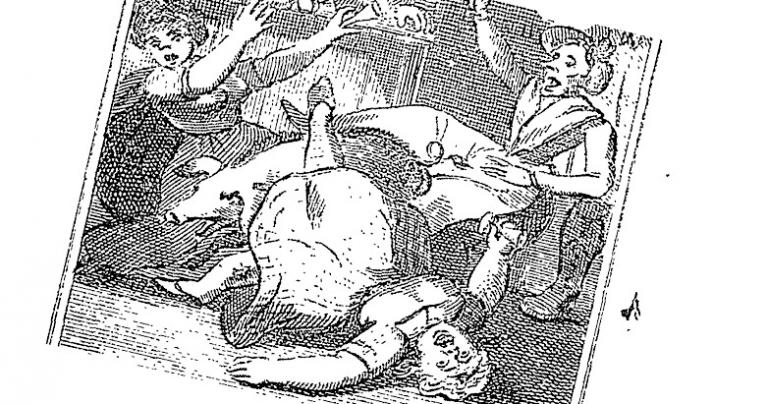 “It’s just words.”
“It’s just words.”
“Beware the quibbles.”
When you hear someone impatient with careful thought, defining terms, or understanding what the experts say (even if they turn out to be wrong) beware. An evil of our time is impatience: an evil that has grown every decade from World War II to now. You can be overly “careful.” There are a few, a blessed few, foolish souls dedicated to over precision and unable to come to conclusions out of an impulse to intellectual modesty so swollen it has ballooned to a perverse pride.
”I shall never get refuted,” that man says, “Because I shall keep clarifying forever. I shall never commit myself so nobody will ever see I am wrong.” This fault is so rare as to be, almost, priceless when met. It is a fault, but most of us are too hasty. We rush to conclusions, afraid of the Talky Man, we have no patience with prudence: the one name of a virtue that nobody gives a child anymore.
Instead we look to end the dialog or debate with the Tweet, a quip for the limited. We are not patient and we think five hundred words is a lot, but nothing interesting to our future can be settled in five hundred words. Stated? Perhaps. Defended? Maybe. Understood? No.
For important issues, real persuasion must take time.
One problem with the “mic drop” kind of person is that she or he will reduce something needing loving care to a hateful quip just to win. Simplistic thinking is the enemy of wisdom whether found in the fundamentalist religious person or in the Internet atheist.
Clarity, real intellectual understanding, takes time, because it is hard! There is a more important reason to take our time with arguments, with words, and not too easily call a careful, prudent man a quibbler. True persuasion of an intellectual opponent is hard, generally requiring great patience, kindness, and care. Winning a debate is (relatively) easy, but finding the truth, or educating oneself or others in the truth is hard!
Plato focuses a lot of attention to true persuasion about the truth in Republic. His master, Socrates, wins a debate, but fails to persuade (see start of Book II). Why? Socrates ends up with a debating partner who has no interest in the truth, if the truth would mean he had not “won” the argument. Thrasymachus, educator of future tyrants, knows time is money. Wisdom is worth the time, quibbling is not. Thrasymachus confuses searching for wisdom with Socrates as wasting time with the Talky Man. Socrates replies and Thrasymachus responds:
My dear Thrasymachus, do you really think me a quibbler? Of course I do. And do you imagine that I design my questions in order to trick you and sabotage your arguments?
It’s not a question of imagination. I know very well that’s what you do. But your tactics will fail. Whether you choose open debate or resort to cunning, you won’t get the better of me.
This exchange tells the whole story of a bad discussion, misguided class, rotten political debate. Socrates wants to know the truth and so is careful. Thrasymachus cannot imagine such a man, he is the measure of all men in his own mind, and so cannot imagine Socrates cares about all these details.
Socrates knows the truth is out there, but hard to find. He will keep looking as long as he can. Thrasymachus? He is looking for units to bundle into a package to sell to the rich parents who make his life easy. Socrates is slowing down the pitch to the family of Cephalus, a rich merchant near Athens.
I have seen this problem in myself and in others. When we care too much about getting on with it, or the business of education, we lose education. Wisdom requires attention.
Let us patiently attend.
———————————————-
*I begin an informal summer reading of Republic using Scott/Sterling (a new translation for me). Part 1. Part 2. Part 3. Part 4. Part 5. Part 6. Part 7. Part 8. Part 9. Part 10. Part 11. Part 12. Part 13. Part 14. Part 15. Part 16. Part 17. Part 18. Part 19. Part 20. Part 21. Part 22. Part 23. Part 24. Part 25. Part 26. Part 27. Part 28. Part 29. Part 30. Part 31. Part 32.












